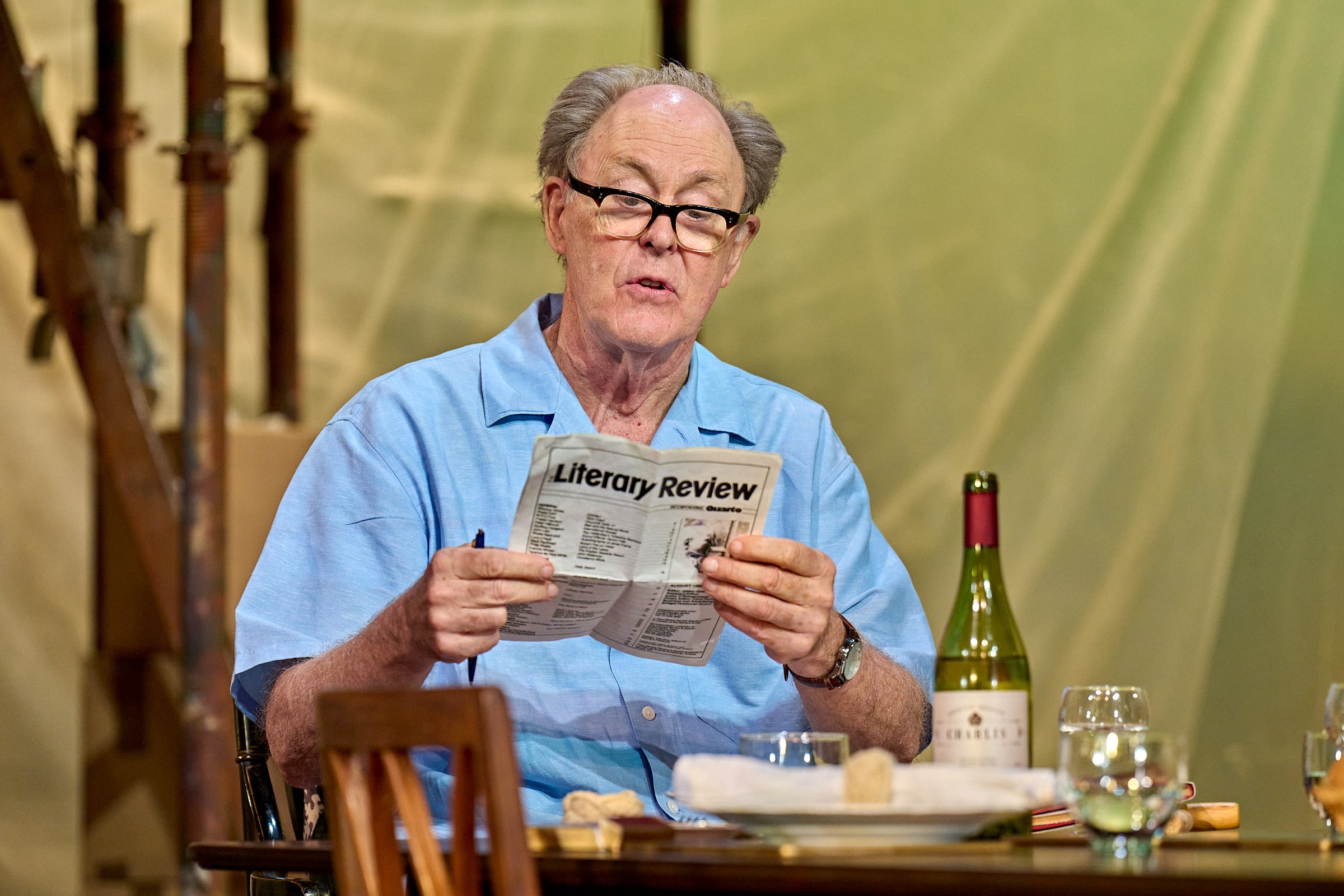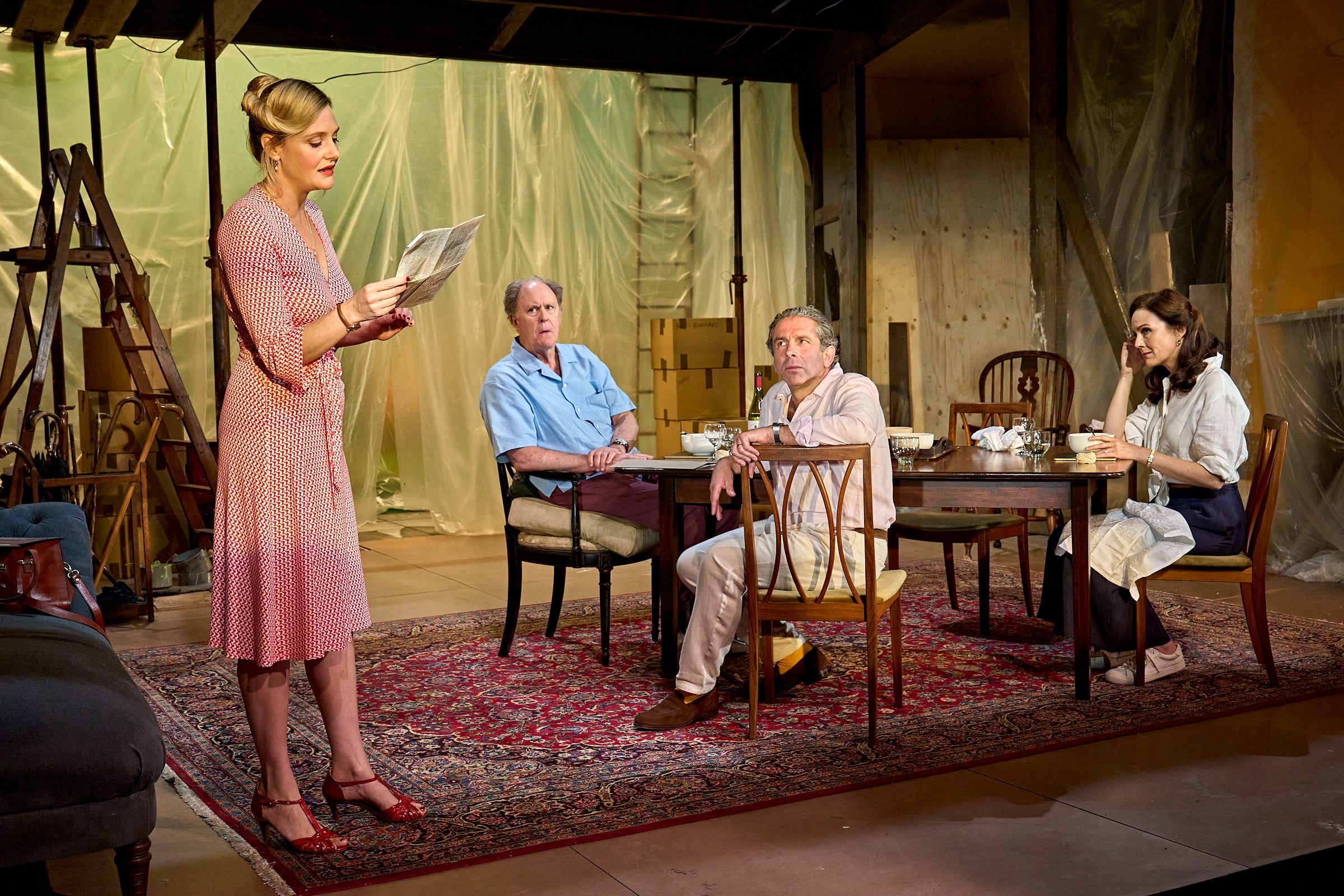Giant review: Simmering, tense study of Roald Dahl and antisemitism with a towering turn from John Lithgow
The controversial children’s author is shown to have a bizarre blend of kindness and borderline sadism in Mark Rosenblatt’s debut play, set in 1983 after the publication of ‘The Witches’ and a shocking antisemitic book review

Roald Dahl was a cankered giant of children’s literature, casting a dark shadow over the pastel-tinted landscapes of a usually benign genre. Famously, he didn’t play nicely. But even so, it’s a shock to see John Lithgow’s towering performance capture all of this storied author’s cruelties in Mark Rosenblatt’s debut play.
It’s set in 1983, when Dahl had just unleashed The Witches into a world that wasn’t entirely delighted by its portrayal of women as grotesque, child-hating murderers in disguise. Worse, a storm of criticism was gathering over a book review he’d written which seemed to hold all Jewish people personally accountable for Israel’s military actions in Beirut. Rosenblatt’s play has the fevered feel of a crisis negotiation, as Dahl’s embattled publishers descend on his kitchen, attempting to secure some kind of public apology. Tom Maschler (Elliot Levey) is a canny operator pursuing a softly-softly approach to his firm’s prime cash cow, while marketing manager Jessie Stone (Romola Garai) is a grenade of emotion, exploding into tears and fury at the misogyny and antisemitism which she can’t take anything other than personally.
Dahl would have been 66 at this time but Lithgow’s portrayal makes him seem a decade older – white-haired and almost entirely past caring about the opinion of professionals he derides as “children”. Rosenblatt brilliantly captures the strident, baroquely florid voice of this cantankerous author as he belittles his illustrator Quentin Blake – “in flutters the Sidcup cherub and swoops off with half my royalties”. And Lithgow faultlessly captures Dahl’s bizarre blend of kindness and borderline sadism: he revels in Jessie’s discomfort as he makes increasingly blunt comments about her Jewish heritage, then makes tender enquiries about her disabled son.
In this convincing portrayal, Dahl has a profound empathy problem, unable to understand issues unless they’ve directly affected him (his interest in disability comes from caring for his ex-wife, Patricia Neal, and his own son, Theo, who developed hydrocephalus as a baby). So it’s perhaps unsurprising that he can’t understand what it’s like to be Jewish – or to be part of any minority group at all. Nicholas Hytner’s simmering, tense production neatly shows the outsize impact his lack of compassion has, with a sobbing, hunched Jessie glimpsed through the translucent plastic curtains at the back of the stage.

A pivotal speech by Tom explains the power of Dahl’s books – how his stories teach children to be brave, by guiding them through the darkness to the light. But that bravery doesn’t extend to examining his own psyche, and that lack of introspection makes him an increasingly unsatisfying central figure to this play: Giant ultimately lacks tension, because it’s clear from the start that Dahl is deeply but lazily prejudiced, with no intention of changing. His final monologue tips him into a more naked kind of bigotry, undermining this play’s previous, subtler explorations of hypocrisy – there’s something interesting but unresolved about the way that Dahl’s cook Hallie (Tessa Bonham Jones) and fiance Felicity (Rachael Stirling) refuse to express their opinions, however much he goads them.
Even so, it’s a play that brings welcome nuance to conversations about antisemitism sparked by the Royal Court’s controversial production of Rare Earth Mettle three years ago – and sketches a memorable portrait of Dahl, one that’s crueller and darker than Quentin Blake’s wildest caricatures.
Royal Court, until 16 November; royalcourttheatre.com
Join our commenting forum
Join thought-provoking conversations, follow other Independent readers and see their replies
Comments
Bookmark popover
Removed from bookmarks